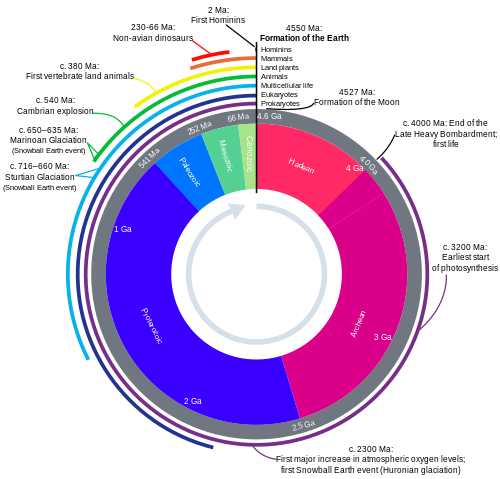We were then introduced to Darwin, who laid down the foundation of the study of evolution. Darwin made observations and then conclusions which allowed future scientists to make the progress they have made. We then learned about evolution, specifically natural selection and the gene pool. Like we know, natural selection is survival of the fittest, and the gene pool is what the population is made up of. However, the most significant topic is what evolution is. Evolution is a change in allele frequency. Speciation is literally the process of creating two species. It is the visual effect of evolution. It is when two populations of the same species grow beyond capable of interbreeding with each other. In other words, they have become 2 new species from that one original. After we leaned what evolution was, we learned about the proof that evolution was true. We learned about embryology, evo-devo, vestigial structures, fossils, analogous/homologous structures, and convergent evolution. Out of all of these processes, the strongest evidence we have in support of evolution is vestigial structures. It is literally visible proof of how populations are in the midst of evolving beyond the use of some bone. However, the evolution has not completely occurred, which is why the structures still show up in some organisms only. The weakest evidence we have, in my opinion, is fossils. Although fossils tell a story, it is too easy to miss a chunk of information/history because one year or one generation didn't fossilize correctly or completely. Evolving populations was all about the types of evolution that occur. There are 5 main types: natural selection, sexual selection, mutations, genetic drift, and gene flow. However, gene flow stops evolution from occurring, as it is the movement of organisms between populations. This means that the organisms still breed with each other and speciation does not occur. The most interesting one is genetic drift. It is when an unexpected disaster strikes and put a dent in a species' population. This also leaves who survives up to chance, so it is not always that the superior trait with survive. We lastly learned about the history of life on earth. This was an interesting vodcast, because even though we learn about the eras in every science class, this is the first time I learned about and RNA based world. I did not realize how important RNA was. I though it was simply RNA, but I would have never guessed it would help create the world we live in so dramatically.

In the middle of learning all of this, we did a couple of fun labs. We did the bird beak one which showed the best bird beak out of a spoon, scissors, tweezers, and a binder clips. It was obviously the tweezers. However, the best lab was the Hunger Games Lab. This lab really made evolution of a population clear. The population grew, shrunk, changed in allele frequency, and many other things. This was also the most fun lab.
The only question I have left is: Where do the new alleles come from in the first place? I understand the original, and how evolution occurs, but where does that new or different allele in the allele frequency change come to be?
I really enjoyed this unit because I am very intersested in evolution and animals. I love studying about what once ruled the planet and what happened. In my opinion, this was my best unit yet on understanding the concepts and participating in class. I was active every class and was doing all my assignments to the best of my ability. I think I did well in being assertive and not aggressive, especially when it came to the Geologic Timeline. This was one thing I wanted to continue to work on. Of course I will still work on it, but I would really like to focus on my studying techniques. I felt confident on the test and did not study as much as I should. Even though I didn't have any problems with the test, it is not a good study habit to not study because you think you know everything.
No comments:
Post a Comment